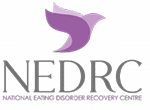Binge eating disorder (BED) is a very real issue. More misunderstood than disorders such as anorexia nervosa or bulimia nervosa, getting an accurate diagnosis for this clinical presentation can sometimes be a challenge. After all, for the person who is facing the binging episodes, it can sometimes feel like well-meaning friends and family members may perpetuate myths about the disorder and its causes. However, with a more evidence-based understanding of BED, many people come to realise that not only is binge eating disorder recovery a possibility, but that with the help of an eating disorder recovery center such as Dublin based NEDRC – many patients can work to develop a mindful relationship with food and their bodies.
What Is Binge Eating Disorder?
Binge Eating Disorder is actually a very common eating disorder in Ireland and it affects many men as well as women. The official description of BED, according to the National Eating Disorders Association (NEDA.org) is:
“Binge eating disorder (BED) is a severe, life-threatening, and treatable eating disorder characterised by recurrent episodes of eating large quantities of food (often very quickly and to the point of discomfort); a feeling of a loss of control during the binge; experiencing shame, distress or guilt afterwards; and not regularly using compensatory measures (e.g., purging) to counter the binge eating.”
To put it simply, BED includes recurrent episodes of overeating that may cause shame or guilt and can lead to further mental duress. These episodes of binging can cause medical complications. Binge eating disorder may look dramatically different from one person to another, so it is very hard to categorise – meaning that many people who should be diagnosed never are. Another reason many people aren’t diagnosed is a feeling of shame. Some of those who have these symptoms may feel ashamed by their binge eating episodes and may feel reticent to ask for help. Therefore, they never tell anyone, leaving the BED undiagnosed.
The diagnostic criteria of BED, also according to NEDA.org, requires that not only a significant amount of food (more than “normal”) be ingested, but also that there is distress, lack of control or stigma involved with these occurrences. Finally, this must be something that occurs on a regular basis, not as a “one-off” basis. When all of these come together, a diagnosis of binge eating disorder can be made by an eating disorder specialist.
What Are the Signs and Symptoms of Binge Eating Disorder?
Binge eating treatment centers such as the NEDRC, Dublin Ireland can guide an individual to a full recovery. However, before treatment can begin, a medical diagnosis is needed to determine whether the symptoms are actually BED or not. Here is a list of common signs and symptoms of this disorder. If a person notices more than a couple of these signs (in themselves or a loved one), they may wish to seek professional advice about binge eating disorder recovery.
- Evidence of binge eating episodes – This may include the disappearance of unexpected amounts of food or large numbers of empty wrappers in the trash or hidden around the home or office.
- Discomfort with eating around others – The shame some people may feel with BED makes eating with others especially challenging. If a person finds it hard to eat meals with others, it may be time to start looking at the treatment options.
- Trying multiple “fad diets”- While not everyone who participates in fad diets has BED, it can be a sign to look out for. These diets can be appealing to those who have binge eating disorder as they could seem to be a quick way to get past the desire to binge.
- Fear of eating in public – Not wishing to eat around others and perhaps be judged for eating choices is sometimes a sign of BED, especially when it is paired with other warning signs.
- Hoarding of food – Those who have BED may want to keep favorite foods on hand in larger quantities than usual or even hoard them secretly.
- Changes in lifestyle involving food – These changes may mean an avoidance of dining out when the individual used to enjoy it or perhaps a trend in picking up takeout to eat on the way home alone, before dining with friends, roommates or family.
- Withdrawal from friends and activities – Because so many activities in life involve food, it is common for individuals with BED to withdraw from friends, family and the things they love to do.
- Extreme obsession with body image – Obsession with body image is a common sign of binge eating disorder. It can make a person more prone to perceiving flaws in their weight and body shape.
- Sporadic fasting or dieting – At times,individuals with BED will diet or fast to try to lose weight after a binging episode.
- Complex food rituals – Many BED patients will develop food rituals (such as not eating certain colors or types of foods or only eating at certain times).
- Eating alone due to embarrassment at the quantity of food eaten – When a person finds herself eating alone more and more often because she is embarrassed about how much food she is eating, it could be a sign of a troubled relationship with eating and her body.
- Feelings of depression or guilt after eating – There shouldn’t be any feelings of guilt after a meal – when this occurs regularly, it’s a clear symptom.
- Noted weight fluctuations – Those who have BED will often see fluctuations of weight up and down. This is because the binge eating episodes do not always occur in the same frequencies and levels.
- Stomach pains or cramps after eating – Large binges can cause stomach pain, gas, and other issues. In fact, it is possible to eat so much that it can actually damage the stomach or stomach lining and even cause vomiting. This is one reason why binge eating disorder recovery is so important–BED can have medical complications.
It should be noted that most of the above indicate that the disorder is not a lack of willpower–they indicate a challenging issue in the relationship with food and eating. Luckily, binge eating disorder recovery is possible with a proper diagnosis and when help is obtained, especially at a professional and compassionate binge eating treatment center such as NEDRC.
Is BED Just a Lack of Willpower?
Absolutely not. It’s time to put that myth to rest. BED is not just a lack of willpower; in fact, many individuals who have been diagnosed with BED can achieve full recovery. However, because they have an very real eating disorder, not unlike anorexia nervosa or bulimia nervosa, they might need professional and compassionate care.
How Should Binge Eating Disorder Be Explained to Others?
First, individuals with binge eating disorder and their loved ones don’t have to explain anything to anyone. However, if a person does decide to explain binge eating disorder to friends or family members, it is often easiest to explain it as a disorder which is very treatable.
It may also help to share a few facts about binge eating disorder.
- BED is an equal opportunity eating disorder, affecting all genders, ethnicities, ages.
- Binge eating disorder was only officially recognized as an eating disorder in 2013, though was included as “other eating disorders, not specified” for decades before.
- Emotion, not hunger, can be the driving force behind BED.
- Not all people with binge eating disorder are overweight.
How Can Therapy Lead to Recovery?
Just as binge eating disorder is much more than just a lack of willpower or (another myth) simple overeating, when searching online for binge eating disorder treatment near you, it’s wise to seek out specialized eating disorder treatment programs.
Treatment can include one-on-one therapy sessions, group therapy, nutritional planning, mindful movement, journaling and other activities that help the patient develop a balanced relationship with food and the body. Binge eating disorder isn’t something that develops overnight, so recovery from their binge eating disorder doesn’t happen overnight either.
When an individual is thinking about seeking therapy for BED, checking out eating disorder treatment options is a good idea as well. By doing this and consulting with a medical provider it is easy to see what options are available and decide what may be the best choice for the individual’s unique needs.
NEDRC can help you take that vital step to regain a healthy and happy life. Please call us about our eating disorder treatments.

